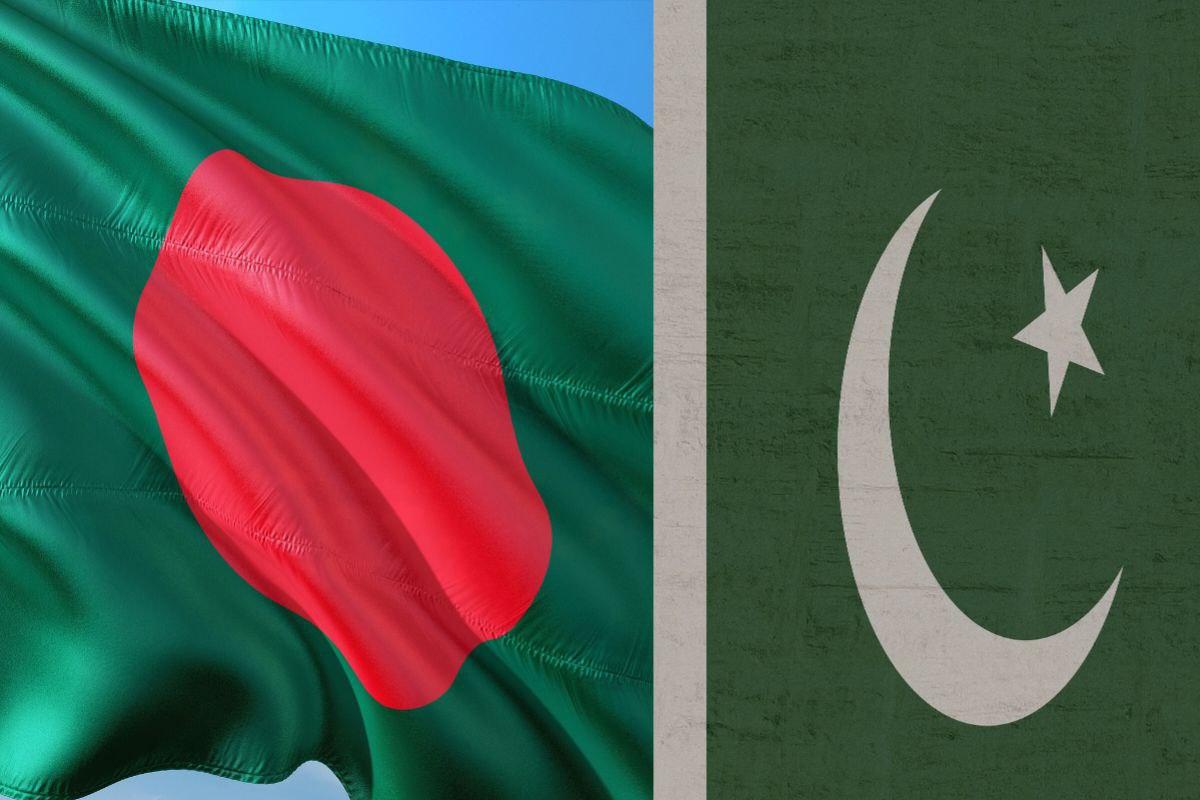
In a surprising geopolitical shift, Bangladesh and Pakistan have moved significantly closer to each other, triggering serious concerns in India. The recent visa-free agreement between the two countries, particularly for diplomatic and official passport holders, is being viewed by Indian authorities not just as a diplomatic development but as a potential strategic and security threat.
This sudden warming of ties between Islamabad and Dhaka has created a new layer of tension in South Asia, especially at a time when India is already grappling with challenges from both China and Pakistan. Now, with Bangladesh tilting towards Pakistan, New Delhi finds itself in a more precarious position in terms of regional balance and national security.
The agreement was finalized during a high-level meeting in Dhaka between Pakistan's Interior Minister Mohsin Naqvi and Bangladesh's interim Home Minister Jahangir Alam Chowdhury. The deal eliminates visa requirements for diplomatic and official passport holders, a move being seen as the first major step towards resetting long-frozen ties between the two countries.
This decision marks a dramatic shift in Bangladesh's foreign policy stance. Since its independence in 1971 from Pakistan, the two countries have maintained a cold, often strained relationship. Under the leadership of Sheikh Hasina, Bangladesh had been extremely cautious and, at times, openly critical of Pakistan, particularly on issues of past war crimes and terrorism.
However, the political landscape in Bangladesh has changed following the exit of the Sheikh Hasina government. The interim government, now in power, appears to be altering the country’s diplomatic priorities — and Pakistan is clearly back in the picture. This newfound proximity between the two nations is being seen as a sign of increasing trust and cooperation.
What is more concerning for India is that this agreement is not just symbolic. It comes with strong indications of deeper strategic alignment. The two countries have reportedly been engaging in discussions on sensitive areas such as counter-terrorism, police training, internal security, and curbing human trafficking. Such collaboration could pave the way for long-term institutional partnerships that may directly affect India’s security calculations.
New Delhi is especially wary of the potential misuse of visa-free access. There is growing concern that Pakistan’s notorious intelligence agency, the ISI, could exploit the relaxed travel norms to plant its operatives in Bangladesh and use the country as a springboard for activities inside India. Given the porous nature of the India-Bangladesh border, such infiltration is a real threat.
Furthermore, internal instability in Bangladesh could be exploited by extremist groups, many of whom are already known to have an anti-India stance. India fears that with the growing bond between Dhaka and Islamabad, there could be indirect or covert support extended to such organizations, thereby increasing cross-border terrorism risks.
This development also signifies a possible shift in the broader regional power structure. With China already deeply embedded in South Asia through its Belt and Road Initiative, and with Pakistan-Bangladesh ties strengthening, India could find itself increasingly isolated unless it recalibrates its diplomatic approach in the neighborhood.
India is monitoring the situation closely and does not see this as a routine diplomatic agreement. Indian strategic circles view this as a move with far-reaching consequences that could challenge India’s internal security and its strategic depth in the region.
As Bangladesh and Pakistan prepare for more bilateral cooperation, including joint efforts in various security domains, India’s next steps will be crucial. Whether through diplomatic outreach or regional alliances, India will have to respond in a manner that safeguards its national interests while maintaining regional peace and stability.
This emerging axis between Pakistan and Bangladesh has opened up a new front in South Asia's complex geopolitical theatre — one that India cannot afford to ignore.
Disclaimer:
This blog is intended for informational and educational purposes only. The content is based on publicly available reports and geopolitical developments. It does not represent any official stance or policy advice. Readers are encouraged to verify facts independently and interpret the information in the context of broader regional dynamics.




